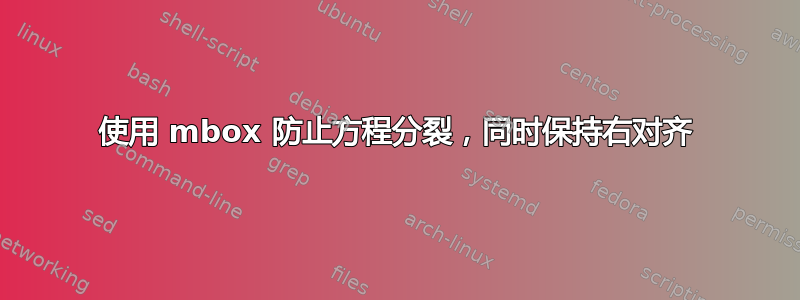
我有一个方程式,但我不想拆分它。我使用了 mbox 来防止它拆分,但这样做会导致文本不再右对齐。是否可以同时执行这两项操作?如果可以,怎么做?
这是乳胶代码(请忽略数学内容,我只是询问格式):
\documentclass{article}\usepackage{amsmath}\begin{document}
N are $Z$ and $Z-\{0\}$ respectively. For each i, both M and N interpret
$R_i$ as \mbox{$\{(x,-x): x \in Z \land 0<|x|\leq i\}$}. Consider the
finite sublanguage \mbox{$L_{i_0}=\{R_i:i\leq i_0\}\subseteq L$}. To see
that $M|L_{i_0}\cong N|L_{i_0}$, consider the bijection
$\phi:M\rightarrow N$ defined.
\end{document}
这是它生成的 pdf 的图片
注意等式L_{i_0}=\{R_i:i\leq i_0\}\subseteq L延伸到了右边距
答案1
我认为 Cicada 的评论是“正确”的答案。空格是你的朋友,大量使用空格可以大大提高可读性。我会写
\documentclass{article}\usepackage{amsmath}
\begin{document}
\noindent %we are imagining there is more paragraph above this line.
$N$ are $Z$ and $Z-\{0\}$ respectively. For each $i$, both $M$ and $N$ interpret $R_i$ as
\[\{(x,-x): x \in Z \land 0<|x|\leq i\}.\]
Consider the finite sublanguage
\[L_{i_0}=\{R_i:i\leq i_0\}\subseteq L.\]
To see that $M|L_{i_0}\cong N|L_{i_0}$, consider the bijection $\phi:M\rightarrow N$ defined.
\end{document}
渲染结果如下
如果您确实需要内联文本(我有时会遇到这种情况),我只需使用括号将整个数学表达式括起来:
\documentclass{article}\usepackage{amsmath}
\begin{document}
\noindent %we are imagining there is more paragraph above this line.
$N$ are $Z$ and $Z-\{0\}$ respectively.
For each $i$, both $M$ and $N$ interpret $R_i$ as $\{(x,-x): x \in Z \land 0<|x|\leq i\}$.
Consider the finite sublanguage ${L_{i_0}=\{R_i:i\leq i_0\}\subseteq L}$.
To see that $M|L_{i_0}\cong N|L_{i_0}$, consider the bijection $\phi:M\rightarrow N$ defined.
\end{document}
看起来像





